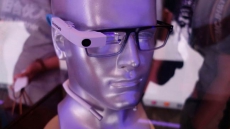You love to share the pics and videos of your kid's antics on social media. But are you ending up sharing too much? A lot of parents say yes.
University of Michigan National Poll on Children's Health found that more than half of the mothers and one-third of fathers are discussing child health and parenting on social media.
Nearly three quarters of parents said social media makes them feel less alone.
But how far is too far when it comes to crossing the boundaries between public and private life?
"By the time children are old enough to use social media themselves, many already have a digital identity created for them by their parents," said Sarah J. Clark from the University of Michigan.
"On one hand, social media offers today's parents an outlet they find incredibly useful, on the other hand, some are concerned that over sharing may pose safety and privacy risks for their children," Clark added.
When sharing parenting advice on social media, common topics included getting kids to sleep (28 percent), nutrition and eating tips (26 percent), discipline (19 percent), daycare/preschool (17 percent) and behaviour problems (13 percent), according to the poll that surveyed a national sample of parents of children aged zero to four.
However, parents also recognised potential pitfalls of sharing information about their children, with nearly two-thirds concerned someone would learn private information about their child or share photos of their child.
More than half also worried that when older, their child may be embarrassed by what was shared.
"There's potential for the line between sharing and over sharing to get blurred. Parents may share information that their child finds embarrassing or too personal when they are older but once it's out there, it's hard to undo," Clark said.
"The child won't have much control over where it ends up or who sees it," Clark added.
Three-quarters of parents polled also pointed to "oversharenting" by another parent, including parents who shared embarrassing stories, gave information that could identify a child's location, or posted photos perceived as inappropriate.
Stories of sharenting gone wrong have been rampant, with one of the most extreme examples included a phenomenon called "digital kidnapping" reported earlier this year.
Parents were shocked to learn that strangers were "stealing" their kids online photos and resharing them as if the children were their own.
In other cases, children's photos have become the target of cruel jokes and cyber bullying.
Among the most notorious cases in recent years was that of a Facebook group that made fun of "ugly" babies.





